Busk
Zolochiv district, Lviv region
Sources:
- Pinkas Hakehillot Polin: Encyclopedia of Jewish Communities, Poland, Volume II, published by Yad Vashem, Jerusalem.
- Russian Jewish encyclopedia
- Jewish encyclopedia of Brockhaus & Efron
Photo:
- Eugene Shnaider
- Biblioteka Narodowa Polona. Busk
- Virtual Shtetl. Wielka Synagoga Miejska w Busku
- Oleksandr Malyon, Wikipedia. Palace of Badeni
- Pinkas Hakehillot Polin: Encyclopedia of Jewish Communities, Poland, Volume II, published by Yad Vashem, Jerusalem.
- Russian Jewish encyclopedia
- Jewish encyclopedia of Brockhaus & Efron
Photo:
- Eugene Shnaider
- Biblioteka Narodowa Polona. Busk
- Virtual Shtetl. Wielka Synagoga Miejska w Busku
- Oleksandr Malyon, Wikipedia. Palace of Badeni
First mentioned in 1097 in Primary Chronicle as Bug City (Ruthenian: бужьсъкъ городъ, buzhesk horod) in the context of the dispute between Rus' princes for border area between Principality of Halych and Volhynian principality. Bug City was named due to its location near Western Bug which locally is known as Bug river.
Busk was granted town charter in 1411 by Siemowit IV, Duke of Masovia. In the Polish–Lithuanian Commonwealth, it belonged to the Belz Voivodeship, and was the seat of a separate administrative unit, the Land of Busk.
The town remained part of Poland until the first partition of Poland (1772), when it was seized by the Habsburg Empire, and remained in Austrian Galicia until late 1918.
In the interwar period, Busk belonged to Kamionka Buska County, Tarnopol Voivodeship, until Soviet invasion of Poland in September 1939.
Busk was granted town charter in 1411 by Siemowit IV, Duke of Masovia. In the Polish–Lithuanian Commonwealth, it belonged to the Belz Voivodeship, and was the seat of a separate administrative unit, the Land of Busk.
The town remained part of Poland until the first partition of Poland (1772), when it was seized by the Habsburg Empire, and remained in Austrian Galicia until late 1918.
In the interwar period, Busk belonged to Kamionka Buska County, Tarnopol Voivodeship, until Soviet invasion of Poland in September 1939.
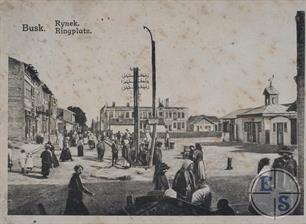 |
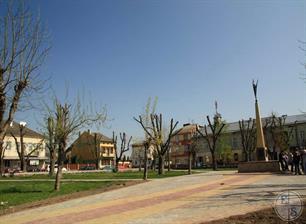 |
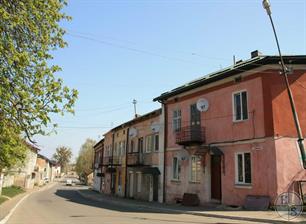 |
| Square Market, 1917 | Square retained the initial layout and several old houses | |
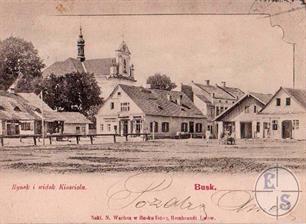 |
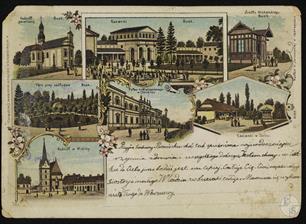 |
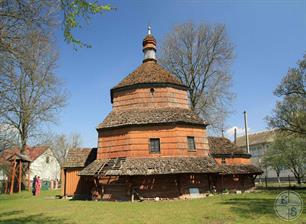 |
| Market and church | Wooden church, built in 1708 |
The first references to the Jews of Busk date back to the beginning of the 16th century. The document of 1510, which has survived to this day, determines the amount of tax that the Jews had to pay to the treasury of King Sigismund. This tax amounted to 20 florins with gold, and was supposed to get to the Royal Tax Inspectorate through the Lviv Kahal, in which the Busk community was a "prikahalik".
In 1518, the king freed Jews from taxes for a year due to ruin caused by Mongol-Tatars, and then generally changed the tax system - instead of gold, tax was accepted in state money.
In 1564, the new king Sigismund August expanded the rights of Jews: they were allowed to buy and sell land plots and houses in any part of the city, build new houses, engage in any trade and "use all rights and benefits along with the townspeople due to the fact that everything is carried State and city duties along with the latter. "
In 1518, the king freed Jews from taxes for a year due to ruin caused by Mongol-Tatars, and then generally changed the tax system - instead of gold, tax was accepted in state money.
In 1564, the new king Sigismund August expanded the rights of Jews: they were allowed to buy and sell land plots and houses in any part of the city, build new houses, engage in any trade and "use all rights and benefits along with the townspeople due to the fact that everything is carried State and city duties along with the latter. "
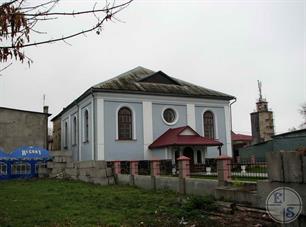 |
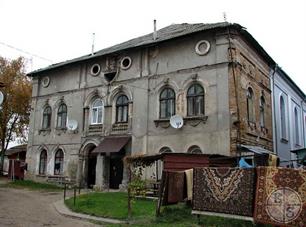 |
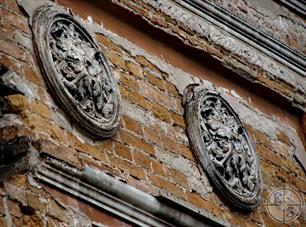 |
| Former synagogue, 2015. Now here is a Protestant prayer house | ... and half of the building was adapted for residential | |
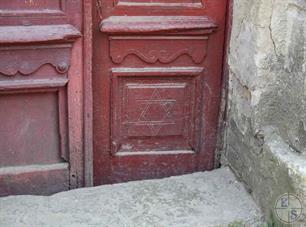 |
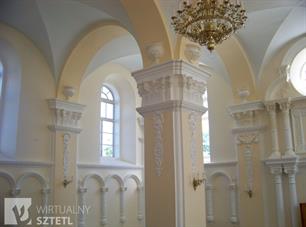 |
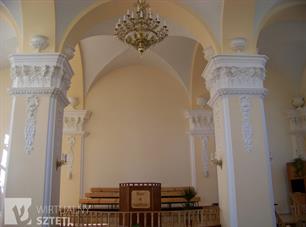 |
| David star on the door | Interior |
Busk is known in the Jewish world and other interesting phenomenon. A unique person lived here, probably the only Jew in the world who took turns an adept of three religions - Judaism, Islam and Catholicism! This is, of course, about Jacob Frank, the founder of the famous Francist sect, who considered himself a Mashiach.
Frank initially tried to lead the orphaned Sabbatianism, for which he accepted Islam. But relations with the followers of Shabtai Zvi did not work out - although they had their own characteristics, but in general they did not particularly go beyond the framework of traditional Judaism. The ideas of the new Messiah were much bolder - to implement the divine plan, it is necessary to violate all the laws of Halakha, Jerusalem will never have any meaning, etc.
Frank founds a new current and periodically exposes the Masonic conspiracies of traditional Judaism, arranging public disputes with orthodox rabbis. The disputes organized power represented by the Catholic Church, and, as Don Corleone said, the rabbis made a proposal that cannot be abandoned. The church also acted as an arbiter, and it is easy to guess who was appointed winner. One of the most famous such disputes took place in 1759 in Lviv. It was from Busk that Yakov Frank went to the final meeting, whom the city escorted with great pomp. And after the "victory" the Francists solemnly accepted the baptism...
And besides the failed Mashiach, in the city lived... King David! In 1100, Busk become a capital of Prince David Igorevich, the grandson of Yaroslav the Wise, expelled from Vladimir.
Frank initially tried to lead the orphaned Sabbatianism, for which he accepted Islam. But relations with the followers of Shabtai Zvi did not work out - although they had their own characteristics, but in general they did not particularly go beyond the framework of traditional Judaism. The ideas of the new Messiah were much bolder - to implement the divine plan, it is necessary to violate all the laws of Halakha, Jerusalem will never have any meaning, etc.
Frank founds a new current and periodically exposes the Masonic conspiracies of traditional Judaism, arranging public disputes with orthodox rabbis. The disputes organized power represented by the Catholic Church, and, as Don Corleone said, the rabbis made a proposal that cannot be abandoned. The church also acted as an arbiter, and it is easy to guess who was appointed winner. One of the most famous such disputes took place in 1759 in Lviv. It was from Busk that Yakov Frank went to the final meeting, whom the city escorted with great pomp. And after the "victory" the Francists solemnly accepted the baptism...
And besides the failed Mashiach, in the city lived... King David! In 1100, Busk become a capital of Prince David Igorevich, the grandson of Yaroslav the Wise, expelled from Vladimir.
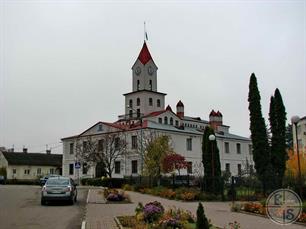 |
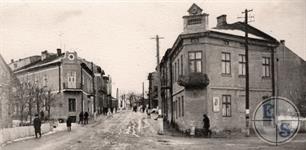 |
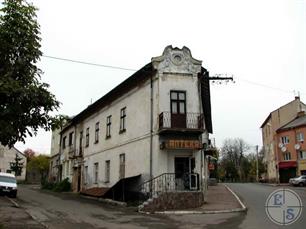 |
| City Hall, 2015 | The development around the Market Square has not changed much | The same house, 2015 |
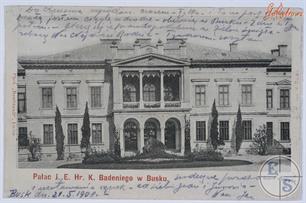 |
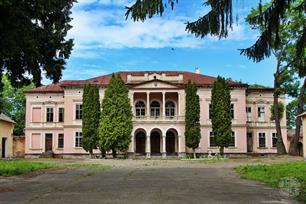 |
|
| The estate of Count Badeni, 1905 | And now, 2020 |
In the 19th century, almost all trading, bakery and tavern in Busk belonged to Jews.
In 1884, 5,297 people lived in Busk: 2 001 Poles, Roman Catholics (37.8%), 1,640 Ukrainians, Greek Catholics (31.0%), 1,566 Jews (29.6%), 69 Protestants (1.3%), 17 calvinists (0.3%).
Almost all the Jews of Busk were killed by the Nazis and Polis during the occupation.
In January 1943, patients with typhoid were shot.
On May 21, 1943, 1,200 people were killed, on May 31 of the same year - another 139.
On the beginning of the 21th century Jews do not live in Busk.
In 1884, 5,297 people lived in Busk: 2 001 Poles, Roman Catholics (37.8%), 1,640 Ukrainians, Greek Catholics (31.0%), 1,566 Jews (29.6%), 69 Protestants (1.3%), 17 calvinists (0.3%).
Almost all the Jews of Busk were killed by the Nazis and Polis during the occupation.
In January 1943, patients with typhoid were shot.
On May 21, 1943, 1,200 people were killed, on May 31 of the same year - another 139.
On the beginning of the 21th century Jews do not live in Busk.
Busk Jewish cemetery is unique in that the oldest matsevot in Ukraine is located here (not counting the Karaite in the Crimea). Tombstones of the 16th century easy to determine - these are massive rectangles without any jewelry and drawings.
Notable people
- Rabbi Chanoch Dov Padwa (17 August 1908 – 16 August 2000), a world-renowned Orthodox Jewish posek, Talmudist and rabbinic leader.
- Moritz Szeps (5 November 1835, Busk – 9 August 1902, Vienna), an Austrian newspaper tycoon who founded and published the Neues Wiener Tagblatt (1867-1886), Wiener Tagblatt (1886-1894), and Das Wissen fьr Alle (1900).
- Joseph (Yosef) Weinreb (1869–1943), also known as the "Galitzianer Rav," the first chief rabbi of Toronto, Canada.
- Nahman ben Samuel ha-Levi, a Frankist rabbi, who lived in Busk, Galicia, in the first part of the eighteenth century. When Mikulski, the administrator of the archbishopric of Lemberg, invited the representatives of Judaism to a disputation with the Frankists on July 16, 1759, Nahman was one of the Frankist delegates. On his baptism into the Christian faith he took the name of Piotr Jacobski.
- Rabbi Chanoch Dov Padwa (17 August 1908 – 16 August 2000), a world-renowned Orthodox Jewish posek, Talmudist and rabbinic leader.
- Moritz Szeps (5 November 1835, Busk – 9 August 1902, Vienna), an Austrian newspaper tycoon who founded and published the Neues Wiener Tagblatt (1867-1886), Wiener Tagblatt (1886-1894), and Das Wissen fьr Alle (1900).
- Joseph (Yosef) Weinreb (1869–1943), also known as the "Galitzianer Rav," the first chief rabbi of Toronto, Canada.
- Nahman ben Samuel ha-Levi, a Frankist rabbi, who lived in Busk, Galicia, in the first part of the eighteenth century. When Mikulski, the administrator of the archbishopric of Lemberg, invited the representatives of Judaism to a disputation with the Frankists on July 16, 1759, Nahman was one of the Frankist delegates. On his baptism into the Christian faith he took the name of Piotr Jacobski.

- Home
- Shtetls
- Vinnytsia region
- Volyn region
- Dnipro region
- Donetsk region
- Zhytomyr region
- Zakarpattia region
- Zaporizhzhia region
- Ivano-Frankivsk region
- Kyiv region
- Kropyvnytskyi region
- Luhansk region
- Lviv region
- Mykolayiv region
- Odessa region
- Poltava region
- Rivne region
- Sumy region
- Ternopil region
- Kharkiv region
- Kherson region
- Khmelnytskyi region
- Chernihiv region
- Chernivtsi region
- Cherkasy region
- Crimea
- Synagogues
- Cemeteries
- Objects & guides
- Old photos
- History
- Contact
Jewish towns of Ukraine
Jewish towns of Ukraine
My shtetl
My shtetl
Donate
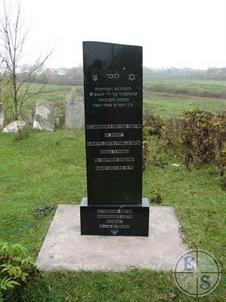
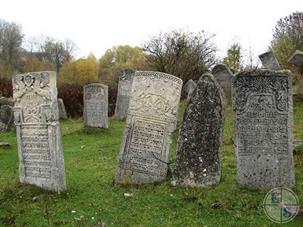
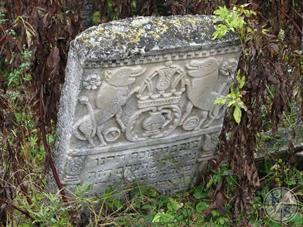
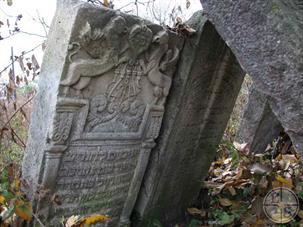
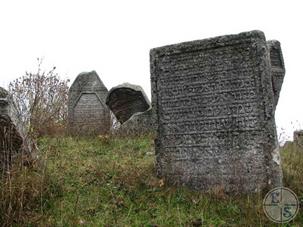
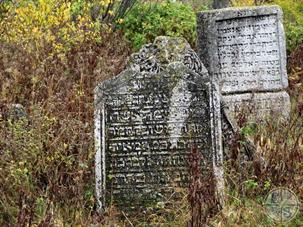
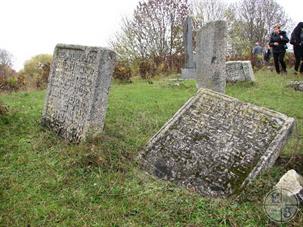
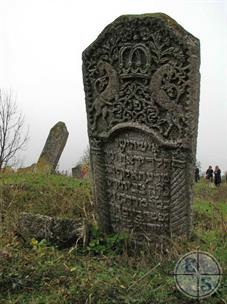
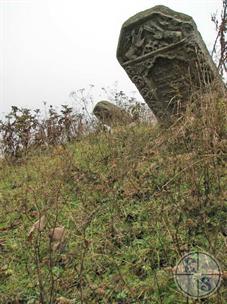
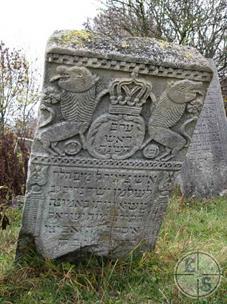
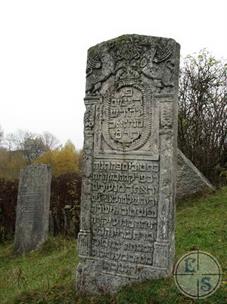
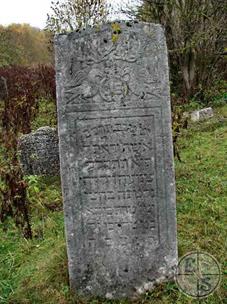
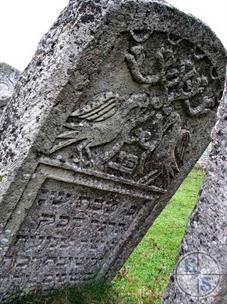
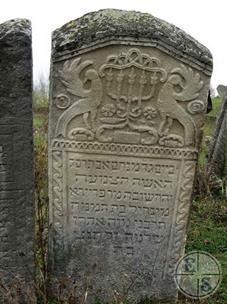
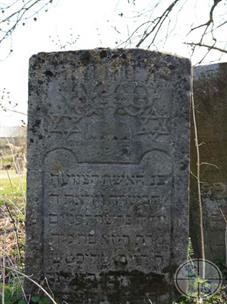
!["Given the jewelry instead of the ashes (Yeyshahu, 61:3) Honest man is buried here, rabbi Yehuda Ben rabbi Yakov, nicknamed Yuda. He died on Tuesday 5 kislev a year 5281 from Creation (23/11/1520). There will be a soul [it is tied with souls] Abraham, Yitzhak, Yaakov and all [righteous] " "Given the jewelry instead of the ashes (Yeyshahu, 61:3) Honest man is buried here, rabbi Yehuda Ben rabbi Yakov, nicknamed Yuda. He died on Tuesday 5 kislev a year 5281 from Creation (23/11/1520). There will be a soul [it is tied with souls] Abraham, Yitzhak, Yaakov and all [righteous] "](images/tn_busk_0047.jpg)